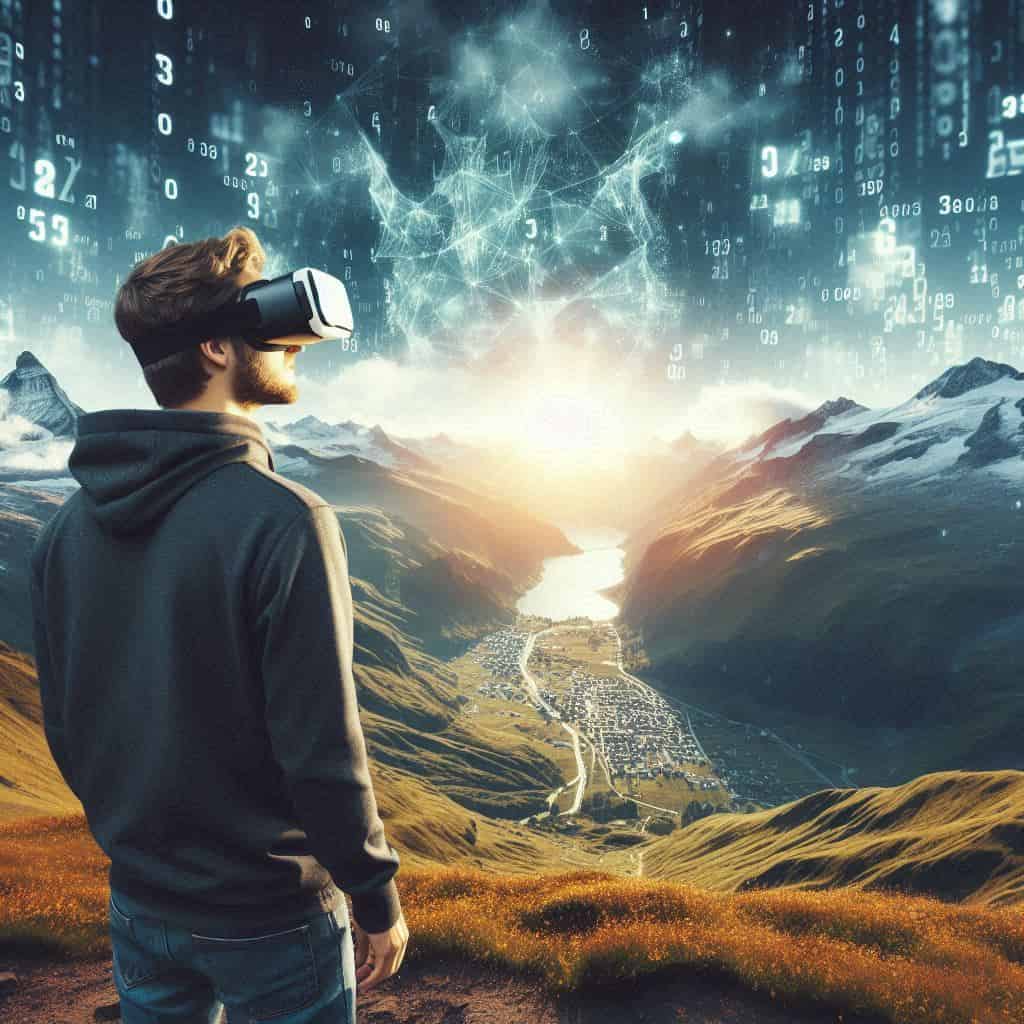Stress, stress and more stress: half of Dutch workers sometimes lose sleep due to stress. Besides work, there are many things in daily life that can get us down. So what if we could escape for a moment into the alpine landscape? Psylaris, a software company based in Limburg, has developed a relaxation module based on virtual reality (VR). “Once people find peace, they work three times harder to get back on track,” says Mike Verhiel, co-founder and CEO of the company.
Why this is important:
VR has the potential to solve societal challenges, including mental health challenges.
When we think of VR, games immediately come to mind. But simulated environments are increasingly being used in mental health care (GGZ). Psylaris has been working in this field for many years. Founded in 2017, the company has developed VR modules for trauma, anxiety, depression, and more. “But in recent years, people have often asked us if we could also use the knowledge we have gained to help people with symptoms of stress and burnout,” explains Verhiel. “We’ve been working on this for a long time, and soon our product will finally be on the market.” To this end, Psylaris receives funding from LIOF, a regional development company in the province of Limburg. LIOF encourages projects that seek solutions to social challenges, including in health care.
VR offers solutions to a variety of problems, including long waiting lists, a shortage of therapists, and rising healthcare costs. For example, in the previous trauma module, patients can use the glasses at home on their own without the help of a therapist, allowing them to receive full treatment from one to three times a week. The relaxation module allows users to work independently, further reducing the burden of treatment.
Mountain peak, sunset
The CEO explains that users (clients, practitioners or “ordinary” employees) can choose from different relaxation formats. Firstly, there are passive relaxation modules, where you are in a relaxing environment – for example, a boat ride through the canals of Utrecht or watching the sunset on a mountain top. There are also active modules with guided meditation or breathing exercises. “The great thing about VR glasses is that there are many more possibilities than in the real world. You can manipulate colors, visualizations, etc. to create the best conditions for the person.” Users can choose their own environment.
Virtual reality games can be used as a performance evaluation tool
Virtual reality (VR) proficiency can be used as an indicator for talent assessment and selection.
Medical Hypnosis
The third form is medical hypnosis, which was later added to the relaxation module. “This is a bit different to the general image of hypnosis that many people have in mind,” smiles Verriel. Hospital patients are put into a deep state of relaxation, reducing the need for painkillers for their symptoms. “In France, for example, almost every hospital employs experts in this field to help with pain management.”
Several scientific studies into the application of hypnosis are currently underway at Thomas Moore, Flanders’ largest university. Although official results are yet to be released, Belier concludes that preliminary findings are promising: “There was a significant reduction in average heart rate, which is a strong indirect indicator of reduced stress levels.”
The fact that the relaxation module “works” is no coincidence: Psylaris draws on six years of experience. For example, the company has been offering EMDR-VR (Eye Movement Desensitization and Reprocessing) for many years, a therapy that processes trauma and anxiety through eye movements, sounds and taps, reducing the emotional burden of memories. Psylaris has also developed modules for exposure therapy and addiction treatment.
Verriel: “For example, when it comes to our approach to communicating with customers, we know what works well and what doesn’t. We tried dozens of voice actors. The way the voices are voiced in the app is based on years of data collection. As a result, we found that the tone of the app as a whole should be calm, but at certain times of the day it should be upbeat to help users.” Verriel is proud of the new product: “We managed to develop an effective module that allows people to take a break from their daily routine, find peace and then return to their normal life more productively.”
Traditional Market
Introducing innovative VR-based solutions to the mental health community is a challenge, Verhiel acknowledges. “Traditional sales methods don’t work here. It takes time to build trust.” But once that trust is built, people are certainly open to innovative treatments. “That gives us confidence to bring new products to market,” the CEO concludes. The relaxation module is called Psylaris Relax, and will be available to medical professionals and companies from July 1st.

